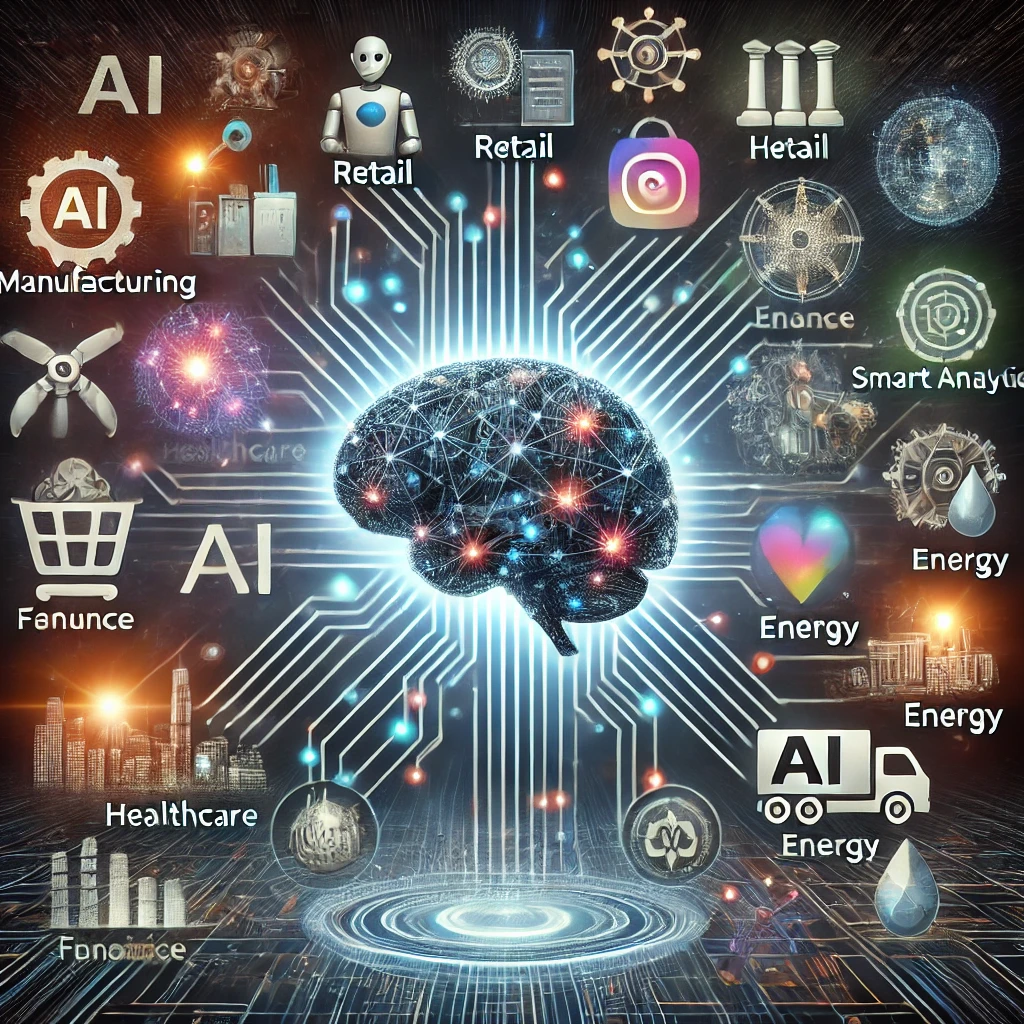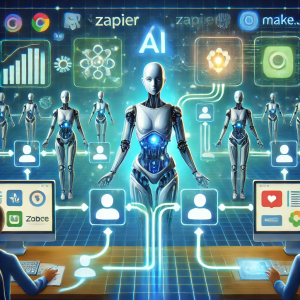Artificial Intelligence (AI) has evolved from a futuristic concept to an integral part of modern business operations. From streamlining workflows to unlocking new revenue streams, AI is transforming industries across the globe. Its rapid adoption is reshaping how businesses approach problem-solving, decision-making, and growth. Let’s explore the profound impact of AI on modern industries and how it is driving efficiency and innovation.
1. Automation and Efficiency
One of the most significant contributions of AI to business operations is automation. Tasks that once required human intervention are now automated with AI, saving time, reducing errors, and improving efficiency. This applies across various industries:
- Manufacturing: AI-powered robots perform tasks such as assembly, inspection, and quality control at a speed and precision unattainable by humans.
- Customer Service: Chatbots and virtual assistants are handling customer inquiries around the clock, ensuring that customer support is always available and improving response times.
By automating repetitive tasks, businesses can focus their human workforce on more strategic and creative functions, ultimately enhancing productivity.
2. Data-Driven Decision Making
Data has become a critical asset for businesses, and AI enables them to harness its full potential. AI algorithms can analyze vast amounts of data to extract meaningful insights, detect patterns, and predict future trends. This capability is transforming how businesses make decisions:
- Retail: AI-driven analytics help retailers understand customer behavior, optimize inventory management, and personalize marketing campaigns.
- Healthcare: AI systems analyze patient data to predict disease outbreaks, optimize treatment plans, and improve diagnostics accuracy.
By empowering businesses with data-driven insights, AI allows them to make informed, precise decisions that can boost efficiency and revenue.
3. Personalization and Customer Experience
AI is redefining customer experience by enabling businesses to offer highly personalized services. Through machine learning algorithms, AI can learn from customer interactions and tailor recommendations to individual preferences:
- E-commerce: AI recommendation engines provide personalized product suggestions, improving the shopping experience and increasing sales.
- Financial Services: Banks and fintech companies use AI to offer tailored financial advice and detect fraudulent activities in real-time.
The ability to deliver customized experiences helps businesses build stronger relationships with their customers and enhance brand loyalty.
4. Predictive Analytics and Forecasting
AI’s predictive capabilities are proving invaluable across industries by helping businesses anticipate trends, customer demands, and market fluctuations. Predictive analytics leverages historical data to provide actionable insights:
- Supply Chain Management: AI forecasts demand and optimizes inventory levels, minimizing costs associated with overstocking or stockouts.
- Marketing: AI-powered analytics predict consumer behavior, helping businesses launch targeted campaigns that maximize engagement and conversions.
Predictive analytics gives companies a competitive edge by allowing them to stay ahead of market changes and capitalize on opportunities.
5. Process Optimization and Cost Reduction
AI is being leveraged to optimize business processes, reducing operational costs and enhancing overall efficiency. This is especially crucial in industries where precision and resource management are vital:
- Energy: AI optimizes energy consumption and reduces waste through smart grids and energy-efficient algorithms.
- Logistics: AI improves route planning, reducing fuel consumption and delivery times, thus saving costs for logistics and transport companies.
Through intelligent process optimization, AI not only boosts efficiency but also promotes sustainability by minimizing resource wastage.
6. Enhancing Security and Risk Management
AI plays a pivotal role in enhancing cybersecurity and managing business risks. AI systems can monitor network traffic, detect suspicious behavior, and prevent cyberattacks in real-time:
- Cybersecurity: AI-powered threat detection systems identify and mitigate potential security breaches before they cause significant damage.
- Financial Risk Management: AI analyzes market conditions and transactional data to assess and mitigate financial risks, enabling businesses to safeguard their assets.
With AI’s advanced capabilities, businesses can stay protected in an increasingly complex and risky digital environment.
7. Fostering Innovation and New Business Models
AI has not only improved existing processes but also fostered the creation of entirely new business models and industries. The rise of AI-driven platforms and services has expanded business opportunities:
- Autonomous Vehicles: Companies like Tesla and Waymo are revolutionizing transportation with AI-driven self-driving cars, disrupting traditional automotive industries.
- AI as a Service (AIaaS): Many companies now offer AI-powered solutions as a service, allowing businesses to integrate AI without developing in-house expertise.
AI’s potential for innovation is limitless, opening new doors for businesses to explore and redefine their operations.
Conclusion
AI is no longer a distant future but a present reality, reshaping modern business operations across industries. From automation and data analytics to personalization and risk management, AI is driving transformation at an unprecedented pace. Businesses that embrace AI stand to gain a competitive advantage, improve efficiency, and unlock new growth opportunities. As AI continues to evolve, its role in business operations will only expand, making it a crucial driver of success in the digital age.
By adopting AI-driven solutions, businesses can stay ahead of the curve, adapt to changing market dynamics, and continue thriving in an ever-competitive landscape. The question for businesses is no longer whether they should integrate AI but how fast they can do so to remain relevant in the future.
[SEO optimized]

